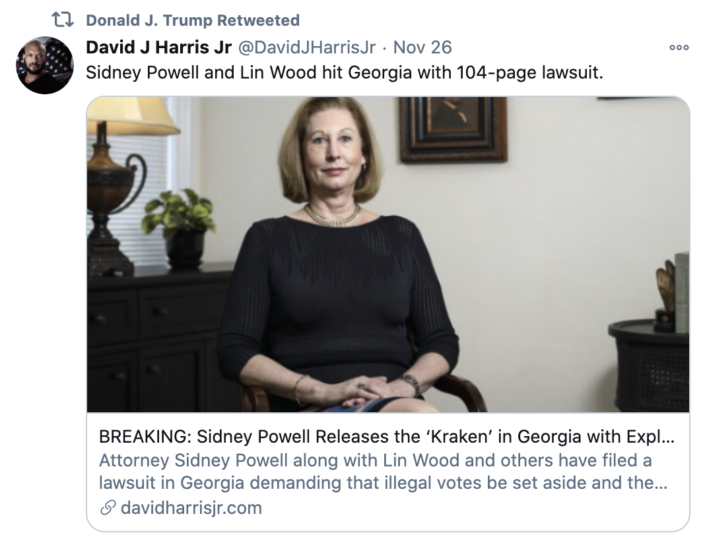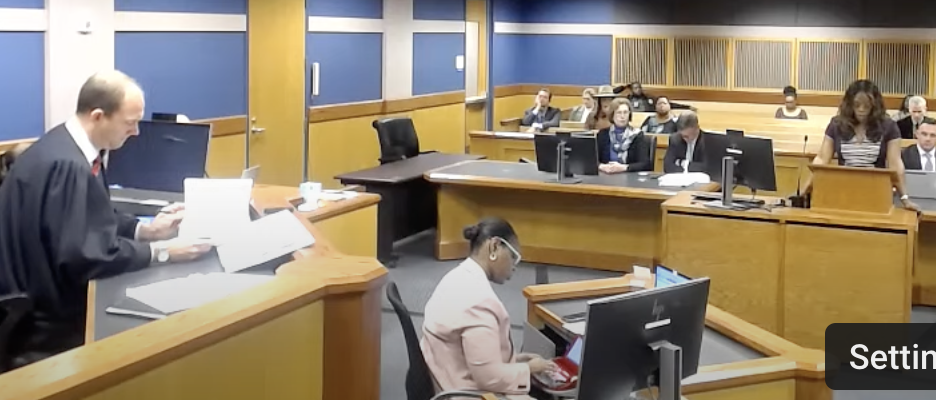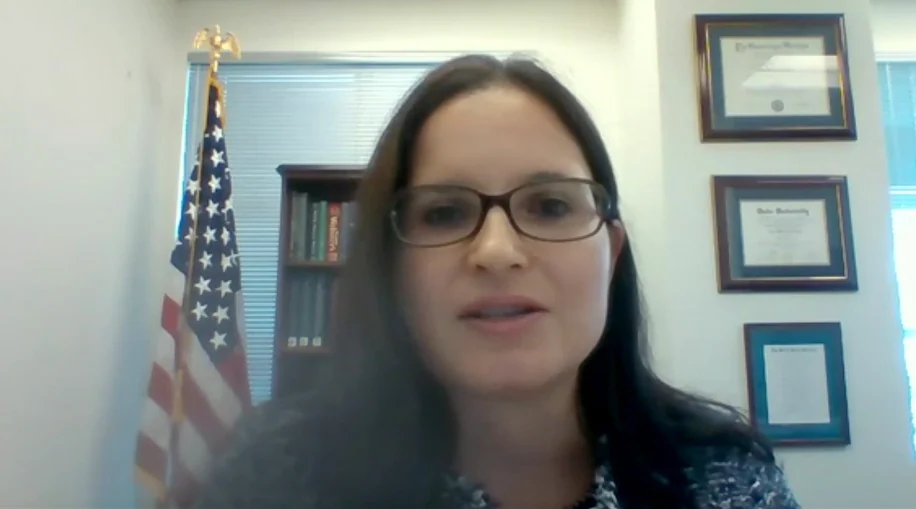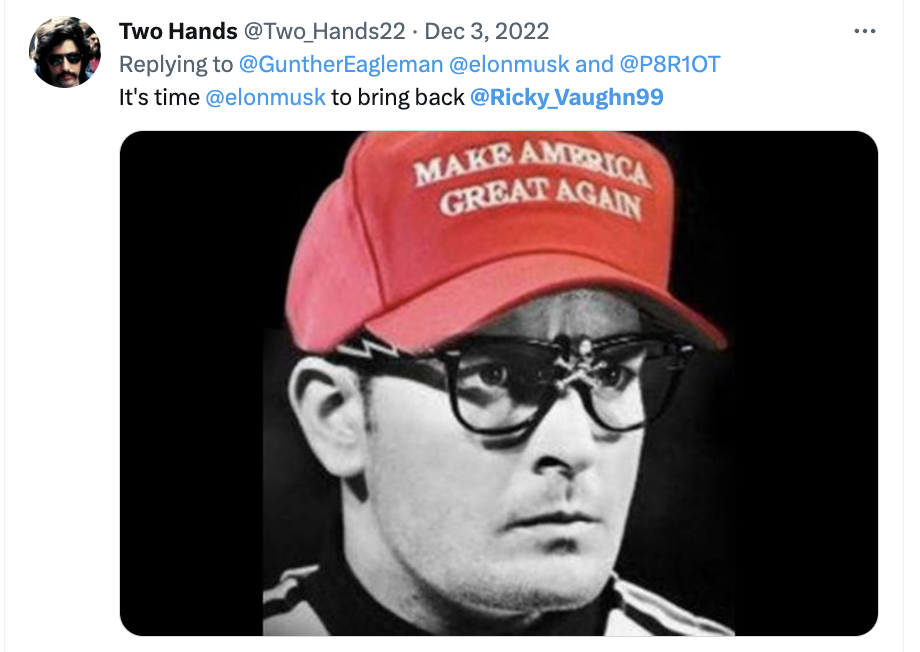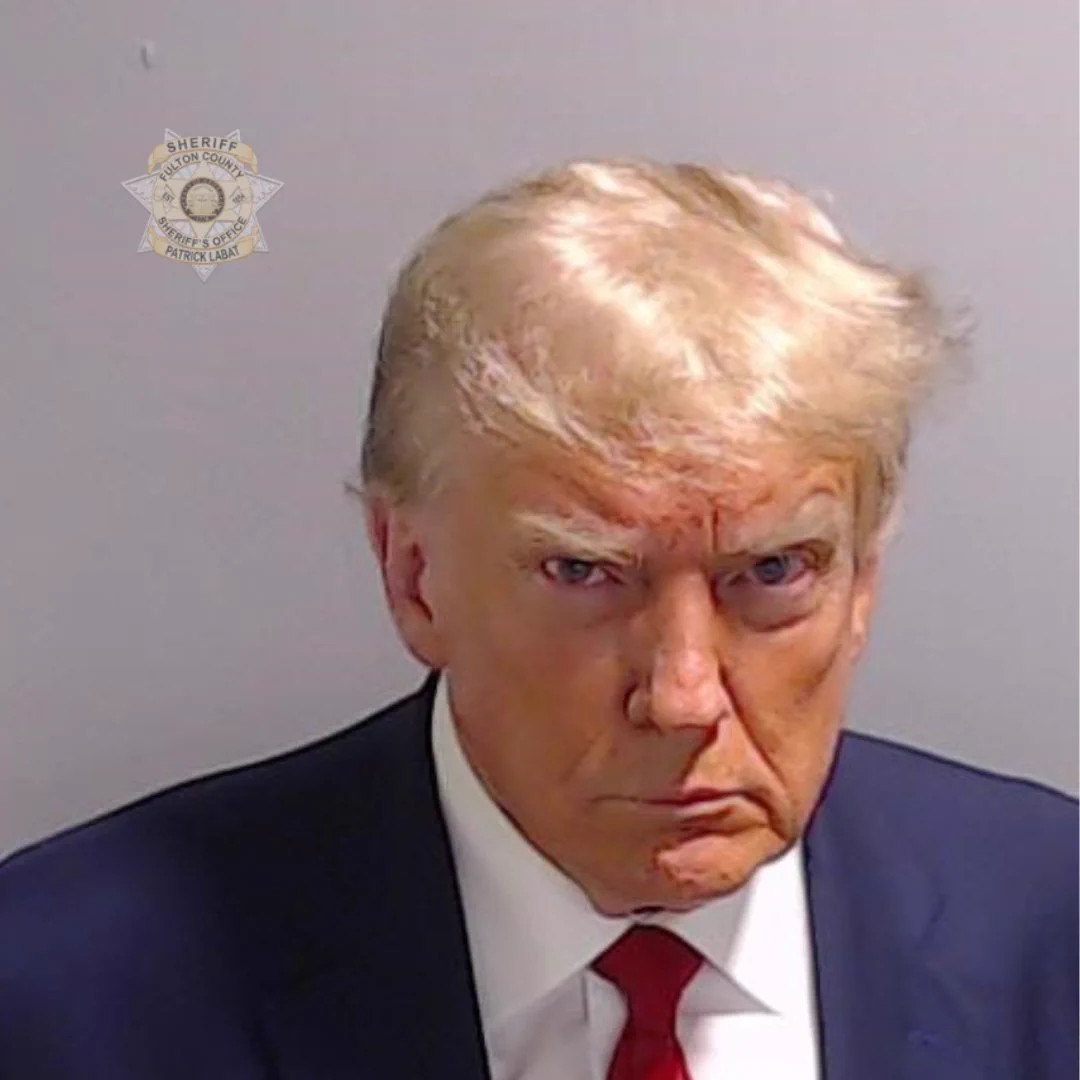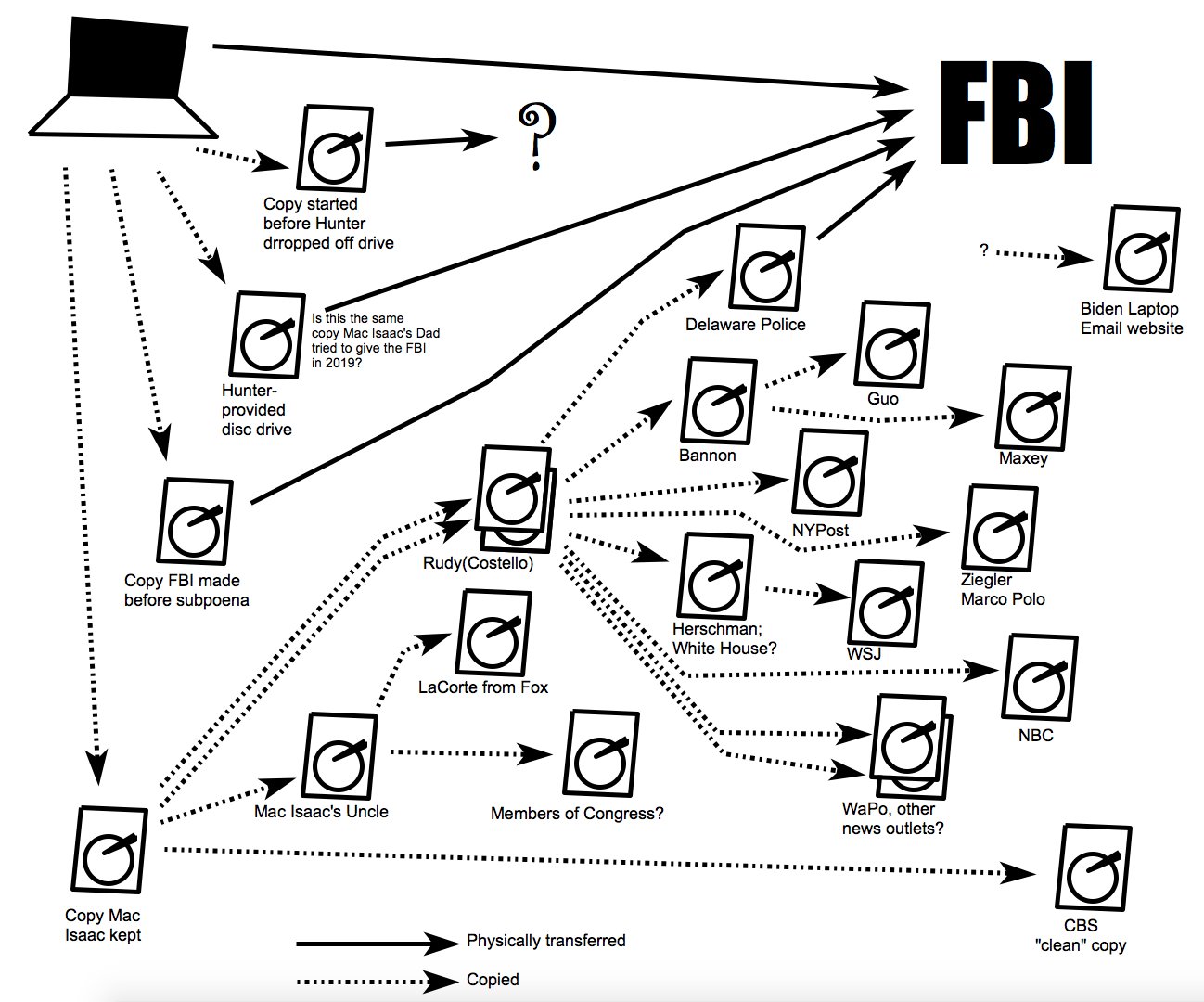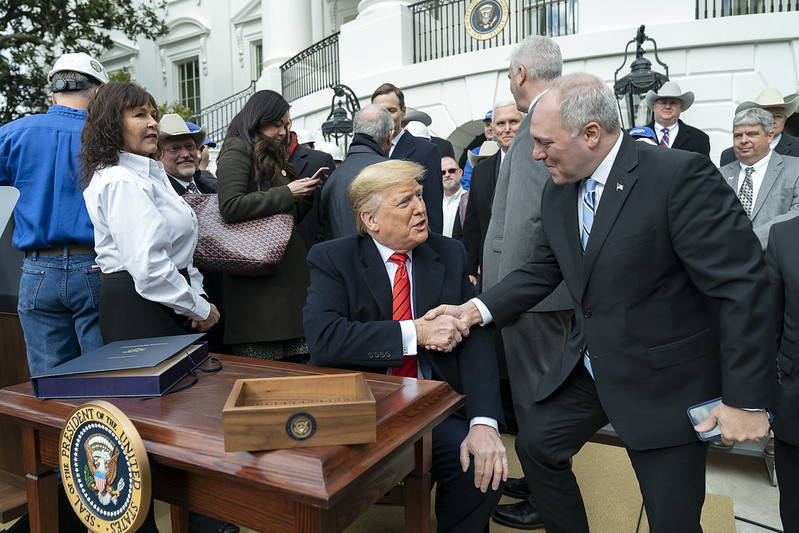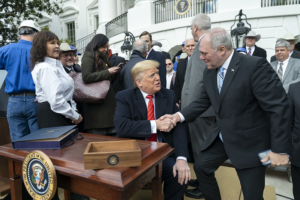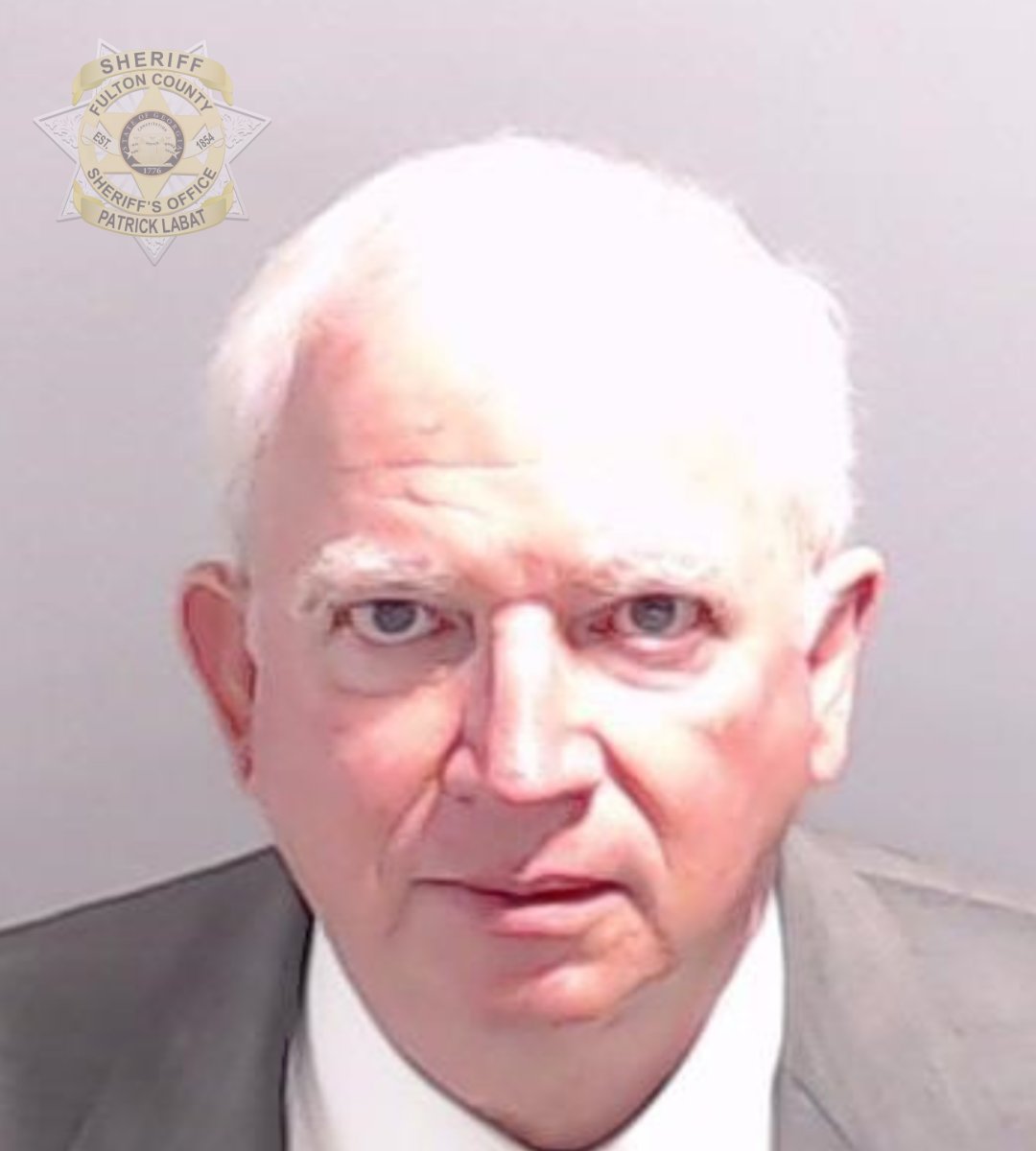Fani Willis Serves Up Cheese and Kraken
Update: As Harpie and others noted in comments, in the hour since I’ve been taping with Nicole Sandler, Kenneth Chesebro pled guilty to a felony in GA.
Hours after the first 450 jurors appeared at the Fulton County Courthouse to fill out a questionnaire ahead of an expected monthslong trial where he faced seven felony counts, Chesebro and his attorneys pleaded guilty to a single felony charge of conspiracy to commit filing false documents.
Chesebro’s deal includes five years of probation, $5,000 in restitution to the secretary of state’s office, 100 hours of community service, a letter of apology, an agreement to testify in future trials and to hand over remaining documents and text messages to the district attorney’s office.
As the news of Sidney Powell’s cooperation plea broke yesterday, there were people asking who could have predicted that Powell — the Kraken! — had turned state’s witness.
I laid out why she might flip back when the Georgia indictment came out.
One way the Georgia and federal indictments will interact is in the relative pressure between already being charged, in a state with strict pardon rules, and being not-yet charged, in a venue where Trump has pardoned his way out of criminal trouble in the past.
Five people are named as co-conspirators in both: Rudy (CC1 in the federal indictment), John Eastman (CC2), Powell (CC3), Jeffrey Clark (CC4) and Ken Chesebro (CC5).
Some of these people, like Sidney Powell, Trump might not consider pardoning in any case. Plus, Trump’s closest associates have spent the last week or so throwing her under the bus. But thus far at least, Powell’s personal legal risk is far greater in Georgia than federally.
Others, though, may think seriously about how much harder it would be to get a pardon for Georgia than a Federal indictment, where the next Republican President, possibly including Donald Trump, would be able to pardon them.
For Powell, more than anyone else, flipping was a wise option. She’s one of the five people charged in Georgia also described as co-conspirators in Jack Smith’s indictment (Boris Epshteyn is believed to be co-conspirator#6 in DC, but is being subpoenaed as a witness in Georgia).
All five are likely aware that loyalty in DC, which might win them a pardon if Trump wins in 2024, won’t save them in Georgia, where pardons are much harder to come by.
After Judge Scott McAfee rejected a Powell bid to dismiss the non-RICO charges against her, the decision to flip likely became a lot easier. The hacking charges with which she was charged were the most serious free-standing charges in the Georgia indictment.
Irrespective of what happens in DC, Powell traded cooperation and six years of probation — with the possibility of having the charges expunged — to avoid the possibility of serious state prison time that Trump couldn’t pardon away.
In any case, Powell is not among the insiders Trump would be quickest to pardon.
One thing about the decision: in spite of all the TV lawyers claiming she’ll make a terrible witness because she’s so batshit, this was an eminently rational decision. She sounded absolutely sane in yesterday’s plea hearing, as I imagine she did when he provided her videotaped testimony before pleading.
As to the question of whether that means Powell would cooperate in DC, it’s worth noting that we can’t even be sure we would know if she were cooperating. After all, few people covering the case account for the part of the investigation into Sidney Powell — for fundraising only tangentially related to any conspiracy with Trump — that was overt over two years ago, or the fact that Michael Flynn and Patrick Byrne had already underbussed her at that point. No one knows the full details about why she spent money raised in that fundraiser to fund the defense of people on the Oath Keepers (and probably others).
More importantly, those trying to imagine how her cooperation would impact Trump seem to imagine that we understand the entire nature of any such cooperation. As I noted in August, the indictment actually includes Powell for just one purpose: to prove that Trump took advice from someone he was publicly identifying as crazy.
[H]er role — as described — is actually very limited. Just one paragraph describes her actions:
20. On November 16, 2020, on the Defendant’s behalf, his executive assistant sent Co-Conspirator 3 and others a document containing bullet points critical of a certain voting machine company, writing, “See attached – Please include as is, or almost as is, in lawsuit.” Co-Conspirator 3 responded nine minutes later, writing, “IT MUST GO IN ALL SUITS IN GA AND PA IMMEDIATELY WITH A FRAUD CLAIM THAT REQUIRES THE ENTIRE ELECTION TO BE SET ASIDE in those states and machines impounded for non-partisan professional inspection.” On November 25, Co-Conspirator 3 filed a lawsuit against the Governor of Georgia falsely alleging “massive election fraud” accomplished through the voting machine company’s election software and hardware. Before the lawsuit was even filed, the Defendant retweeted a post promoting it. The Defendant did this despite the fact that when he had discussed Co-Conspirator 3’s far-fetched public claims regarding the voting machine company in private with advisors, the Defendant had conceded that they were unsupported and that Co-Conspirator 3 sounded “crazy.” Co-Conspirator 3’s Georgia lawsuit was dismissed on December 7.
Go back and look! Her most famous role — when she got cleared into the White House and told Trump he should make her Special Counsel and seize the voting machines — doesn’t appear at all. Indeed, my greatest disappointment with the indictment is that it doesn’t explain one of the enduring mysteries of January 6: what led Trump to adopt January 6 as his plan shortly after that meeting.
It describes Trump’s December 19 tweet — the tweet that triggered thousands of MAGAts to start planning a trip to DC — but not what led up to it.
Curse you, Jack Smith!!!
Aside from proving he knowingly lied, the indictment doesn’t really tell us why Powell plays such a central part of the case against Trump.
There are, however, two details that I think are being missed: First, Powell played a key role in Fox’s platforming of propaganda, as laid out in the Dominion lawsuit (after the Fox settlement, Dominion’s lawsuit against Powell moved into a more active phase).
Fox brought her on and off the campaign, and had a role in her conspiracy theories.
And while Powell appeared on Fox only four times when she was even arguably part of the President’s team, and six times when Fox was clearly aware that she was not. As important, Fox was instrumental in maneuvering Powell both into the Trump campaign and then out of it.
Third, Fox ignores its own role in developing the conspiracy theories it then aired See Dom. MSJ pp.39-44
These two claims — that Fox “maneuvered Powell … out of” the Trump campaign and that they played a role in developing these conspiracy theories, are discussed in heavily redacted passages of the earlier filing (probably redacted because Fox has claimed it pertains to internal business deliberations).
The first — describing how Fox “maneuvered Powell … out of” the Trump campaign after Tucker came under fire for questioning Powell — consists of almost four full paragraphs introduced with a description that Fox, including Tucker and Raj Shah, “mobilized.”
“We won the battle with Powell. Thank god,” the passage quotes a Tucker text later. Dominion is now explaining that that “battle” pertained to getting Powell ousted from Trump’s orbit.
The second claim — that Fox was the source of some of these conspiracy theories — incorporates the description of how Fox got Powell ousted from the campaign, but also includes redacted passages describing Lou Dobbs’ role in “promoting the narrative,” another making a redacted reference to Hannity, as well as the unredacted reference to Bartiromo chasing an email from Sidney Powell that Powell herself said relied on a “wackadoodle” source. The later filing suggests the earlier filing goes as far as saying that Fox played part in developing the conspiracy theories.
That includes a December 10 Lou Dobbs appearance in which Powell claimed there had been a cyber Pearl Harbor that undermined the vote.
Nonetheless, on the next day, December 10, Dobbs had Powell on again, where she repeated the false (and repeatedly debunked) story about the Smartmatic and Dominion machines being designed to flip votes to rig elections for Hugo Chavez,and allowing people to login and manipulate votes . See ¶179(q );Appendix D. But rather than questioning Powell’s claims, Dobbs attacked Attorney General Barr for saying he’d seen no sign of any significant fraud that would overturn the election and told Powell “We will gladly put forward your evidence that supports your claim that this was a Cyber Pearl Harbor,” noting “we have tremendous evidence already,” id. which he now admits was not true. See Ex.111,Dobbs 46:25-47:10,86:20-24 . Dobbs had seen no evidence from Powell, nor has he since. Id.
Powell had sent her claims about a “Cyber Pearl Harbor” to Dobbs (who forwarded to his team) in advance of the show. Ex.450;Ex.451. Prior to the show, Dobbs published a tweet to the @loudobbs Twitter account with the claim that “The 2020 Election is a cyber Pearl Harbor,” and embedding the very document Powell had sent to him just hours before which stated that Dominion was one off our entities that had “executed an electoral 9-11 against the United States” and “a cyber Pearl Harbor,” that “there is an embedded controller in every Dominion machine,” and that they had “contracts ,program details, incriminating information ,and history” proving these claims.¶179(p); Appendix D.
Later the same day, after Powell appeared on the 5pm broadcast and before the 7pm unedited rebroadcast of the show, Dobbs again tweeted “Cyber Pearl Harbor @SidneyPowell reveals groundbreaking new evidence indicating our Presidential election came under massive cyber-attack orchestrated with the help of Dominion, Smartmatic, and foreign adversaries.” ¶179(r); Appendix D. Dobbs conceded at his deposition that this tweet was false Powell had not presented any such evidence on his program that day. Ex.111,Dobbs 269 :2-271:5.
Claims like that were the basis not just of Powell’s lawsuits that provided Trump cover that the election remained undecided, but also of Powell’s sustained effort to obtain Dominion data from swing states, the crime to which she just pled guilty. It was tied to a bid for Trump to use Commander-in-Chief authorities to steal the election.
The Georgia indictment claims that crime started on December 1, 2020 and lasted at least through April 2021.
Indeed, the way in which this pursuit of data was a continuation of and continued after January 6 is one of the most chilling parts of Anna Bower’s account of it. Bower first lays out good reason to suspect that Cathy Latham — another of the charged co-conspirators in the Georgia indictment — was in the Willard Hotel consulting with people like Bernie Kerik.
On Dec. 17, Marilyn Marks, the executive director of Coalition for Good Governance—the election security organization that initiated the Curling suit—texted Latham. Through the election activism grapevine, Marks had heard about the supposed problems with Dominion machines in Coffee, she said in an interview with Lawfare. Something sounded “suspicious” about it all, she said, but she wanted to learn more. She spoke with elections board member Chaney, who suggested that she get in touch with Latham.
Marks texted the GOP chairwoman, explaining that her organization was involved in litigation to move away from the use of Dominion systems in Georgia. Marks asked when Latham might be available to chat. Latham replied: “I am in D.C. right now and am about to meet with IT guys.”
Latham would later admit under oath that she visited D.C. for an unspecified period sometime in December. But she did not confirm the reason she gave at the time. In her deposition, rather, she claimed that she traveled to the capital city because she had been invited to go on a “tour” by a woman named Juliana Thompson, because Latham hadn’t been able to go the previous year.
“We [got] to see the Christmas trees, and I got to go to the Bible Museum,” she explained.
When asked if she met with anyone who was not with the D.C. tour group, Latham replied, “I’m going to plead the Fifth on that.”
But if Latham was in D.C. only to tour the Museum of the Bible and see Christmas trees, why did she tell Marks that she was “about to meet with IT guys”?
And Latham did admit in her deposition that she stayed at the Willard Hotel during her trip.
“That’s where I slept,” she said.
If the Willard Hotel rings a Jan. 6 bell, that’s because it served as the “command center” for the legal arm of the Trump campaign led by Giuliani in this period of time. The rooms were organized and paid for by Bernie Kerik, the former police commissioner of New York City, who worked for the Giuliani legal team as an investigator. Kerik later sought reimbursement for the rooms from the Trump campaign.
According to his testimony before the select committee, Kerik paid for the room of an unnamed “whistleblower” from Georgia who traveled to the Willard to meet with Giuliani sometime during the post-election period. The “whistleblower,” he said, had been brought to the hotel by William Ligon, a Georgia state senator, and an Atlanta-area attorney named Preston Haliburton. He did not specifically identify the whistleblower by name.
That said, later that month, on Dec. 30, Latham appeared alongside Giuliani and other Trump surrogates at a legislative hearing chaired by Ligon. At that hearing, Latham claimed “whistleblower” status as she testified about the alleged “problems” with Dominion Voting Systems machines that led Coffee County to refuse to certify its machine recount results. Haliburton, who was listed as “counsel of record for the Giuliani legal team,” also represented Latham at the hearing.
Latham, in her Curling deposition, denied that she had ever visited the Willard with Haliburton.
As Bower lays out, minutes after Trump called off the riot on January 6, the Coffee County caper — the crime to which both Powell and bail bondsman and David Bossie brother-in-law Scott Hall have already pled guilty — went into motion.
At 4:17 p.m. on Jan. 6, 2021, the president of the United States belatedly tweeted out his video message to the mob that had forcibly disrupted the counting of electoral votes. “You have to go home now,” he finally said.
But even as Giuliani was keeping up pressure on senators to “slow it down,” Coffee County officials were undeterred.
Nine minutes after the president’s tweet, at 4:26 p.m. that afternoon, Hampton sent a text to Chaney: “Scott Hall is on the phone with Cathy about wanting to come scan our ballots from the general election like we talked about the other day,” she wrote.
The next morning, on Jan. 7, Latham texted Hampton to tell her that the SullivanStrickler forensics team had departed Atlanta and were on their way to Coffee County. Hall, she added, was flying in, too. “Yay!!!!” Hampton responded. These events are also mentioned in Acts 142-143 of Count 1 of the Fulton County indictment.
Several minutes later, Paul Maggio, the chief operations officer of SullivanStrickler, sent an email to Powell, Logan, Penrose, and others. “We are on our way to Coffee County Georgia to collect what we can from the Election / Voting machines and systems,” he wrote, attaching an invoice for SullivanStrickler’s $26,000 retainer fee. The invoice billed Powell’s PAC, Defending the Republic.
This may be what Rudy was pointing to when he was pleading with Members of Congress to just buy some days.
It may also be why people like Kerik have been underbussing Powell: because they want to blame her for the plans that continued even after the attack on the Capitol.
I don’t know whether Powell will or even if she already has flipped federally.
What I’m more confident about, though, is that if she did, she’d offer testimony about things that are not widely understood, if at all.

